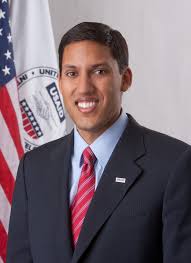Nigeria’s Distributed Access through Renewable Energy Scale-up (DARES), which is being implemented by the Rural Electrification Agency (REA) has been selected as one of the major beneficiaries of the World Bank and Africa Development Bank- funded programme – Mission 300.
The programme aims to ensure electrification in Africa that focuses on clean-energy provision through technologies such as mini-grids, and it is intended to accelerate the DARES project implementation in Nigeria, as well as ensure that 300 million Africans are connected to electricity by 2030 by generating over $90 billion in funding from public funds, concessional finance, and commercial investments.
Under the funding arrangement, the World Bank allocated $750 million to expand the deployment of rooftop solar and mini-grids to bring electricity to 17.5 million people in Nigeria, in which an estimated 85 million people still lacked access to power.
The programme, which is already making strides with the process of sourcing potential projects that can benefit from the funding, has also secured the support of non-governmental organizations (NGOs) in the efforts of the promoters to meet the target.
Some of the NGOs that had indicated their readiness to support the implementation of the Mission 300 project include the Rockefeller Foundation, Global Alliance for People and Planet, and Sustainable Energy for All announced the formation of a technical assistance facility.
Experts believe that already the Mission 300 is proving to be a fundamental energy programme that various organizations seem to take an interest in.
Commenting on the programme, President of the Rockefeller Foundation, Dr. Rajiv Shah, said: “The technical assistance facility is intended to support the World Bank and Africa Development Bank in accelerating their ambitious electrification initiatives across sub-Saharan Africa.
“Every project starts with a single payment. The technical assistance facility is designed to help the World Bank and AfDB jump-start their ambitious electrification plans throughout sub-Saharan Africa”, she added.
In his remarks, CEO of GEAPP, Woochong Um, stressed the need to ensure the “creation of bankable projects that generate impact and offer commercially viable returns.”
Industry experts projected that the Mission 300 programme, if successfully implemented, would bring power to half of the 600 million Africans who do not have access to electricity.
Available data on global power supply indicated that currently Africa accounted for about three-quarters of people without power globally, with South Sudan, Burundi, and Chad having electrification rates of less than 12% of their populations.
Reflecting on the challenge, Head of Rockefeller Foundation’s Power and Climate Program, Ashvin Dayal, said: “We have seen stagnation in getting electricity to more Africans over the last 15 years. This is for us the defining climate and development challenge for the continent over the next 20 years.”
The Rockefeller Foundation and GEAPP are organizations that founded projects such as the Bezos Earth Fund and the Ikea Foundation in 2021, and are using an initial $10 million to provide funding support for power 15 projects across 11 African countries.






